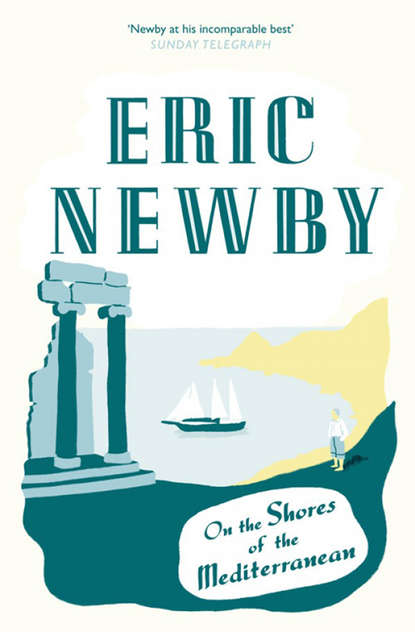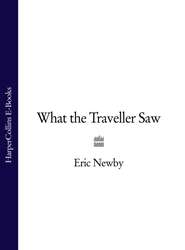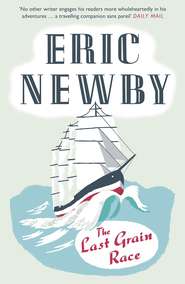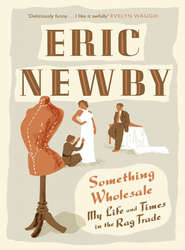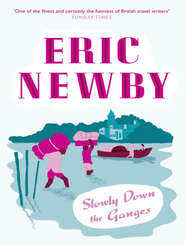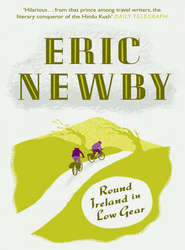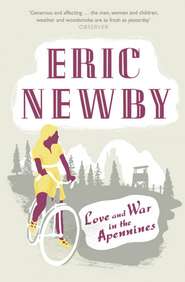По всем вопросам обращайтесь на: info@litportal.ru
(©) 2003-2024.
✖
On the Shores of the Mediterranean
Автор
Год написания книги
2018
Настройки чтения
Размер шрифта
Высота строк
Поля
The stallions at Lipiča are descended from one of six hereditary branches of the male line: Pluto, descended from the Danish stallion born in 1765; Conversano, from the brown Napolitan born in 1767; Napolitano, from a bay of that name born in 1790; Favory, a dun Lipiča born at Kladrub, another imperial stud between Prague and Brunn, in 1779; Maestoso, a grey born in 1819 at Mezohëgyes in Hungary of a Spanish dam sired by a Lipiča; and Siglavy, a grey Arab born in 1810, also at Mezohëgyes. Originally there were eighteen dynasties of dams at Lipiča. Several are now extinct. At Lipiča a horse takes its name from his forefather, followed by that of its dam – Siglavy-Almerina, Pluto-Theodorasta, and so on.
Lipiča no longer supplies horses to the Spanish Riding School. The Austrian horses now all come from Piber, near Graz in Styria, and the stud at Lipiča has become a sort of tourist attraction, although it still supplies horses to the state stables and they are exported all over the world as circus and saddle horses. In the Balkans, at least until recently, they were much used for heavy agricultural work.
Some years ago there were rumours that the stud was to be closed down and that all the horses were to be sold to a sausage factory which has its premises conveniently close by, but nothing came of it.
‘You have been here before,’ any reader who has got this far may well say. It is true I have been, many times, in this part of the world, in the Carso. This is the country, part of Slovenia, itself one of the republics that make up Yugoslavia, in which my wife was born; its inhabitants proud, prickly people with long memories, some of them endowed with second sight, musical, very fond of singing, passionate lovers of flowers, part of a tiny nation conquered by Charlemagne in the seventh century, which, although it struggled successfully to preserve its language, never attained independence. Many of them are now scattered to the far ends of the earth, principally in Australia and South America.
This was the place she meant when, tried beyond endurance by some domestic row, she used to cry, majestically, ‘I shall return to my country and my people!’
Actually, she never did carry out this threat. Instead we returned there together year after year, usually with our children, to stay in her parents’ house.
Over this disputed territory – about twenty miles deep and altogether about the size of Long Island – which has always been one of the principal ways of access for the people of Middle Europe to the Mediterranean, have flown, among others, the flags of Bonaparte’s Illyria, of Austria-Hungary and, more recently, those of both Italy and Yugoslavia, which now have it divided unequally and uneasily between them.
To Italians, the Carso is, as it always has been, the frontier between Latin civilization and what they regard as Slavonic barbarism. It is a very old habit for them to think of it as such. This was the region held by the Tenth Legion and called by the Roman Senate ‘The Impassable Confine’. In their brief modern tenure of it, which lasted about twenty-five years, they succeeded in extending their hold over it, but at great cost. Between 1915 and 1917, fighting against the Austro-Hungarians, in the twelve battles of the Isonzo, in the small area between Monte Michele north of Monfalcone and the Adriatic, they lost 175,000 men, a quarter of their losses in the entire war.
To the Austrians it was Der Karst, or Das Küstenland, now not much more than a nostalgic memory of a time when Trieste was the Austro-Hungarian Empire’s principal port on the Mediterranean. To the Yugoslav nation it is the Kras, what they failed by a hair’s-breadth to seize at the end of the Second World War, which would have given them a prestigious outlet on the Mediterranean, and which became a danger point in their relationship with the West. To the Slovenes it is also the Kras, but to them a place where for some 1300 years they have wrested a hard-earned living from its inhospitable terrain.
After 1918 it was annexed by Italy, and Slovene villages began to have their names printed together with their Italian equivalents on signposts and on Italian maps, as they still do on Italian maps even though many of them are now in Yugoslavia. Under Mussolini, the teaching of Slovene was forbidden and Slovene schoolteachers were replaced by Italians, the Slovene teachers being sent to Italy. There, those who spoke no Italian – most spoke German as a second language (the Slovenes, as members of the Empire, fought in the Austrian army in the First War) – experienced the same difficulty in communicating with their pupils, until they had learned the language, as did monoglot Neapolitans sent to teach Italian to Slovene children, which was what happened to my Slovene father-in-law.
That afternoon we crossed out of Italy at the frontier post at the hamlet near Trieste called Fernetti and into Yugoslavia at Fernetič, which is the name for the same place on the Yugoslav side.
Although it is fairly easy to find frontier officials equally disagreeable to deal with as the Yugoslavian officials on the shores of the Mediterranean, it is difficult to find any more disagreeable to deal with. If nothing else, they make one realize the difference in the tempo of life in Yugoslavia and Italy, now the length of a cricket pitch away. To watch a Yugoslav frontier official examining your passport is like watching one of those fascinating slow motion films, taken over a period of weeks, which shows a plant breaking through the earth, burgeoning and gradually flowering before one’s eyes. Wriggling among the contents of our luggage, the fingers of the customs official were like pale grubs. Thus we entered for the umpteenth time the country in which my wife was born, and to which she had so often threatened to return for ever.
As her mother was now very recently dead – her father had died some years previously – we had decided that this time, before going to stay with other members of her family, we would vary what had been for some thirty-five years an immutable itinerary, and visit first of all a distant kinswoman of hers who had invited us to spend the night in the village in which she lived in the eastern part of the Kras. Here, as in other places in the Mediterranean lands, kinsmen, and kinswomen particularly, recognize kinship to a point at which, in England – but not perhaps in Wales or Scotland – they would long since have ceased to be acknowledged as still existent. Here, everywhere you turn, are to be found kinsmen and kinswomen extending outwards in ever-increasing circles, like ripples on a pond when you throw a stone into it until, in the end, rather like the family of Queen Victoria which covers over two pages of small print in Whitaker’s Almanack, almost everyone is your kin.
This village could have been the prototype of any village in the Kras. Its stone houses, huddled together as if for mutual protection, had walls feet thick, most of them hidden away in walled courtyards behind heavy oak doors under high, carved stone archways. These courtyards, havens in which the owners and their animals shelter from the rigours of the climate and modern Yugoslavia outside, are full of flowers in summer, something about which Slovenes are quite dotty. (My mother-in-law once, at the age of eighty, brazenly took cuttings inside one of the temperate houses in the Royal Botanical Gardens at Kew which did very well in her garden in the Kras.) Overlooking the courtyard, at the upper storey, a wooden balcony runs the whole length of the front of the house with an outside staircase leading up to it, and this balcony and the staircase leading up to it are also full of flowers – asters, dahlias, pansies and geraniums, mostly displayed, as are the ones in the courtyard, in old tin cans with their lids cut off.
The bedrooms look out on to the balcony. The old-fashioned ones are furnished with big dark wooden or iron beds some of which weigh up to three or four hundred pounds. They stand on scrubbed wooden floors and the walls are hung with photographs of immediate ancestors that look as if they have been taken as well as framed by the local undertakers. Younger married people now have flashier furniture, wardrobes and beds with veneer and lots of mirrors, but the women, young or old, unless they are Party members, will have hung a print of the Virgin above the bed as an insurance against misfortune and, perhaps, excessive high jinks.
In the centre of the village is the church, with a white bell tower rising above it to one side and sometimes with the bell rope swinging in the breeze under an arch at the foot of it.
Nothing that the Government or the Party could do after the war, when Yugoslavia became officially communist, to stop the people, particularly the women, in these villages from going to church, was even remotely successful. In the years from 1945 onwards, when priests were forbidden to wear vestments and say mass, they went to the church just the same and simply stood inside it in a silent gesture of defiance and disapproval. When transport to distant places of pilgrimage to which they were accustomed to go was denied them, they set off for them on foot.
Wanda’s kinswoman worked as a waitress in a gostilna, a village inn. Its courtyard was shielded from the sun by a trellis of vines so thick that those sitting beneath it were in perpetual twilight. Under it men were playing cards, slapping them down on the tables and making a great deal of noise. One of the characteristics of the Slovene language, at least up here on the Kras, is that those who speak it often sound as if they are engaged in a violent quarrel when, in fact, they are thoroughly enjoying themselves. Also under the vines there was a bowling alley made of rolled earth. In such a place the only woman on view is usually the waitress. The gostilna is like a London club, a man’s world.
From the terrace of the inn, long, stone-walled expanses of rock with a bit of earth in them masquerading as fields, and interspersed with windbreaks of young trees, swept up to the foot of the mountains, the Nanos, and the Javornik. The Nanos with its bare, high summit covered, as it often is, with what looked like a wig of white cloud; the Javornik, to the south of the gap through which the road and railway run eastwards to Ljubljana, covered with dense forest which still harbours within its fastnesses red deer, wild boar, wolves and what are some of the last European brown bear.
Marija, Wanda’s soi-disante kinswoman, was a widow of indeterminate age, good-looking, if not positively sexy, in a black, widow’s-weedy sort of way. She took us into the building and sat us down at a table in a pale, austere room of which the only other occupants were four fierce-looking young men in blue overalls, who looked as if they might be off duty from a filling station and were playing the same game that was being played on the terrace, a form of whist, slamming the cards down on the table as if they were practising to cut it in quarters with a karate chop, making the rafters ring with cries of what was either rage or triumph.
In one corner there was a big white-tiled wood-burning stove with a long, silver-painted metal pipe extending up from it and across the width of the room and then out into the open air through a hole in the outer wall, which would ensure that the room was always stiflingly hot in winter, however cold it was outside. Old-fashioned lace curtains effectively obstructed what would have been the same view from the windows that one could enjoy outside on the terrace, and the walls, which had been stencilled with a pale apple-green pattern on a white background, rollers being used for this purpose, were hung with the stuffed heads of various sorts of small game, game that were now completely extinct a few miles away over the border in Italy. (It is a paradox that the enthusiasm of the communist apparat for the chase organized on capitalist lines, to the exclusion of the hoi polloi, has led in many communist countries to a positive proliferation of species that in many capitalist countries in Europe have long since become extinct.)
There was also an astonishing profusion of what can only be described as Victorian potted plants, aspidistras, castor oil plants and such, all standing on rather wobbly whatnots. It was all terribly melancholy and over everything hung a faint but palpable, slightly acid smell, compounded of Slavonic cooking, cigarettes, drainage and other elements, difficult to identify, let alone describe, but once inhaled never forgotten. It was a room that was the prototype of a room in a village inn anywhere between the one in which we were now sitting near the eastern shores of the Adriatic, and the Volga.
Here in the Kras, in spite of the heat and the vines heavy with black grapes, not more than twenty miles from its shores, one felt the Mediterranean world receding, could sense that people were no longer looking to it either for sustenance or inspiration, but to Middle Europe.
Having seated us at the table Marija hurried away and after a bit returned carrying a tray on which there was a litre bottle of red wine, a plate of the local ham called pršut, so thinly sliced that it was almost transparent, and a kind of flat, crusty bread called pogača, which she proceeded to cut up, meanwhile making pantomime gestures of eating and drinking to me, reinforcing them with little cries in Italian, which she had somehow got it into her head I was unfamiliar with, of ‘Bere! Mangiare!’, using an infinitive form commonly reserved for cretins, monoglot soldiers of invading armies and infants still at the breast. The pogača was hot from the wood oven, which was outside in the back yard. The pršut was delicious, a rare delicacy. The smoking of this sort of ham is usually carried out in late autumn or in winter and the process of preparing it is only commenced at the time of the full moon. At any other time an inferior product will result. Like many other peasant communities around the Mediterranean, and also elsewhere, the inhabitants of the Kras are still to a great extent governed by the moon in their everyday life. No one used to be surprised, for instance, when one of the apparently robust wooden bedsteads, bought by a newly married couple, disintegrated if it was purchased at the time of the new moon. No other fate could be expected for it. But that was in the past. Now, in the 1980s, bedsteads disintegrated whatever phase the moon was in.
To prepare this ham it was first kept in salt for a week, then it was put in what looked a bit like an old-fashioned letter press for another week, the pressure being increased daily. It was then hung in a chimney to smoke over a fire of ash wood and after that it was hung for anything from seven months to a year in a dry place, having been previously sprinkled with pepper as a protection against flies which, together with dampness, were its principal enemies. By the time a pršut reached Trieste, a good one was about as expensive as smoked salmon.
The wine was Teran, the product of a close circle of about a dozen villages north of the main road from Trieste to Ljubljana, between the Nanos range and the present frontier with Italy. It is a deep purple colour, almost black, with a taste that some people, when they first try it, compare to that of rusty old nuts and bolts. It is best either with hot food, or else with the pršut and the pogača. It is not a wine to drink by itself. It improves on acquaintanceship.
Meanwhile, we ate and drank, while Marija constantly refilled the glasses, particularly my glass, which somehow became empty quicker than Wanda’s, all the time going on and on to Wanda in Slovene about births and deaths and marriages and who had emigrated where, only pausing to go out and get another bottle.
‘Marija says we must drink,’ Wanda said, I thought illogically. Usually she spends her time telling me not to.
‘I am drinking. It’s you who’s not drinking. Anyway, why doesn’t she drink?’
‘Here, it is not the custom for widows …’
‘It’s not the custom for anyone to drink like this, even where I come from. You’d think she wanted to keep me here in pickle.’
‘Bere! Bere!’ (‘Drink! Drink!’) said Marija, who was already refilling my glass. From the yard outside came the sounds of what later proved to be a free-range chicken being slaughtered.
‘That’s our dinner,’ Wanda said. ‘Now they’re going to pluck it, draw it, truss it, put it in a pot on top of the stove with butter and rosemary. It’s going to be hours before we eat dinner.’
‘How many hours?’
‘Three hours.’
‘It’s only seven o’clock now. It’ll be ten. By then I’ll be dead at this rate. Why didn’t you tell her we’d be happy with something simpler? An omelette or just more pršut, more pogača.’
‘I did but she wouldn’t listen. Now she wants to give you some žganje to keep you going.’
‘Why don’t you stop her? What’s come over you?’
‘She will be very upset if you don’t drink. She will say that you do not like her drinks. Tonight you must drink. It is the custom.’
‘Bere! Bere!’ cried Marija, this by-now-to-me-terrible woman, bringing a clean glass and more than half filling it with žganje, then waving her arms as if she was performing a conjuring trick or conducting some vast alcoholic orchestra. What Wanda said was true. The more I drank the more she seemed to warm to me.
Žganje is the equivalent of Italian grappa or French marc, spirit distilled from the skins, pips and stalks left over after the grapes have been pressed and the wine made, but here, in the sticks, home-made and much stronger than what is normally sold commercially because it has been distilled more often. On top of what I had already drunk it was murderous.
‘Look,’ I said, ‘I’ve either got to go to bed until it’s time for dinner, or go for a walk or something. I just can’t go on like this.’
‘You can’t, we’re going to sit with the deads.’
‘You mean a wake? What they had for your mother?’
‘I don’t know what you call it in English. In Italian it’s veglia. You sit with the deads.’
‘I know you sit with the deads,’ I said. ‘We did it with your mother.’
‘Yes, that’s right, wake for the deads. A very old lady, ninety-three, called Nunča Pahorča, Marija’s aunt, died this morning. She was very nice. She’s being buried tomorrow.’
‘Listen,’ I said. ‘I’m half tight. If you think I’m going to sit by some dead dear old lady for three hours until dinner’s ready you’ve got it all wrong. Besides, we had enough of this funeral thing in Naples.’
‘It’s better than sitting here getting dronker,’ she said. ‘And I was only joking about the chicken. It was being killed for someone else. Ours is nearly ready. And you know it doesn’t matter about being a bit dronk, others will be dronk also. We shall only stay a few minutes.’
‘OK,’ I said. ‘Let’s go, before she brings any more žganje. Otherwise it’ll be a double funeral and I don’t fancy sharing a vault with a nice old lady of ninety-three.’





